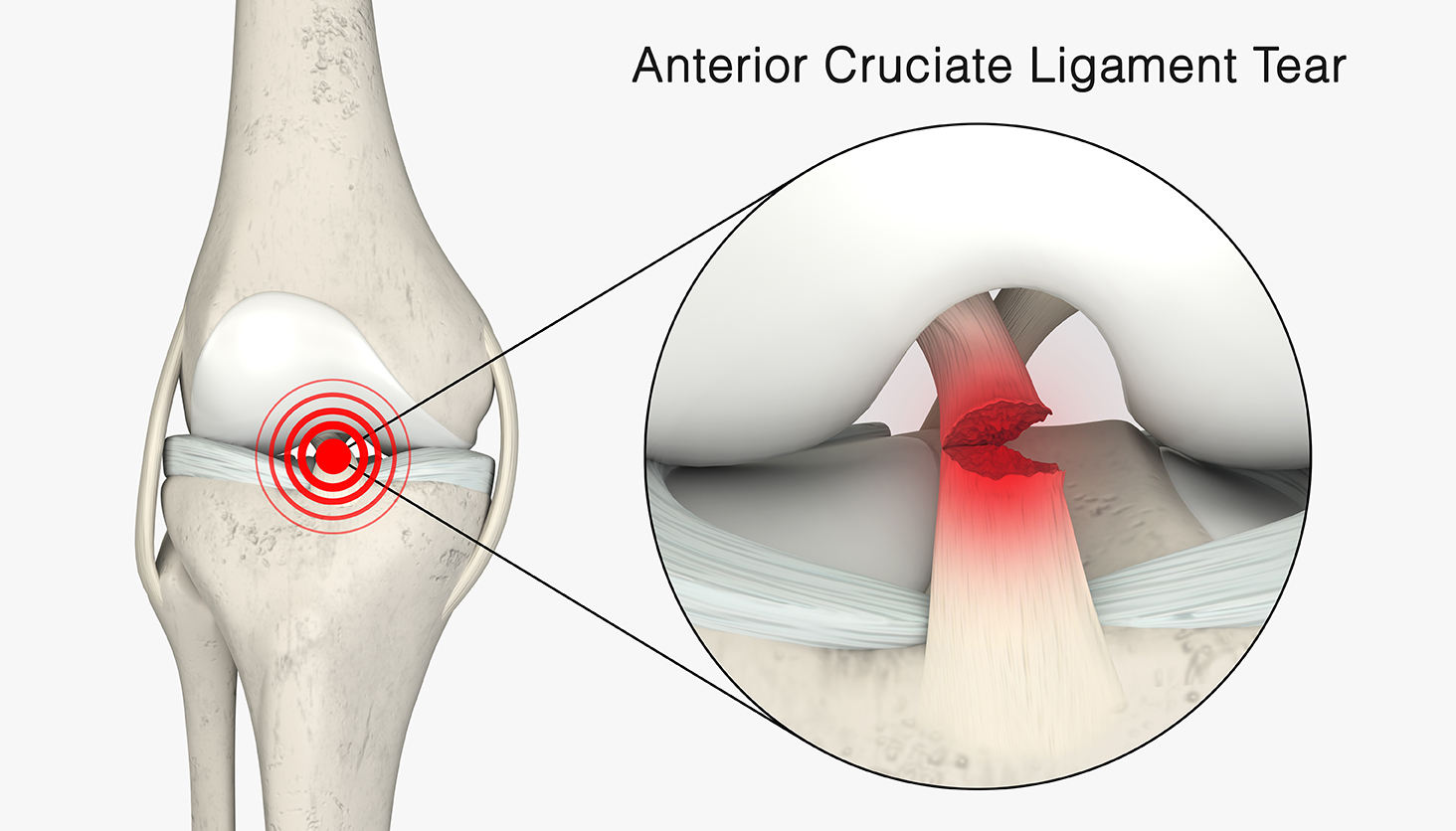Anterior Cruciate Ligament (ACL)
Injury and Reconstruction

What is an ACL tear?
ACL stands for Anterior Cruciate Ligament. It is one of the main knee ligaments (rope like structure) in the knee.
The ACL runs diagonally in the middle of the knee and attaches the thigh bone (femur) to the shin bone (tibia). It stops the shin bone from sliding forward and rotating excessively. The ACL crosses with the Posterior cruciate ligament (PCL) to form an X within the knee joint, and together, they control the front and back motion of the knee.
The ACL is injured far more commonly compared to the PCL. Injuries can happen when there is a pivoting injury, for instance, when athletes change direction rapidly, stop suddenly, or land from a jump incorrectly. Injuries can also happen when there is direct impact on the outer part of the knee, for example, in a football tackle.
Athletes who tear their ACL often feel a ‘pop’ and their knee may swell suddenly (due to bleeding from the torn ligament). There may be a sharp pain in the knee that limits their ability to continue playing or walk. When the knee swelling eventually subsides, the affected knee may feel unstable when the athlete returns to sports. The athlete is at risk of suffering another ACL injury as well as other serious injuries to the knee, such as meniscus and cartilage injuries.
When you visit Dr Seng, he will usually ask you about the mechanism of the knee injury. Some clues on physical examination may reveal the presence of an ACL injury. These include knee swelling, inability to straighten the knee fully, and the presence of instability on provocative tests. An MRI (magnetic resonance imaging) scan can be arranged to confirm an ACL tear and other associated injuries.




